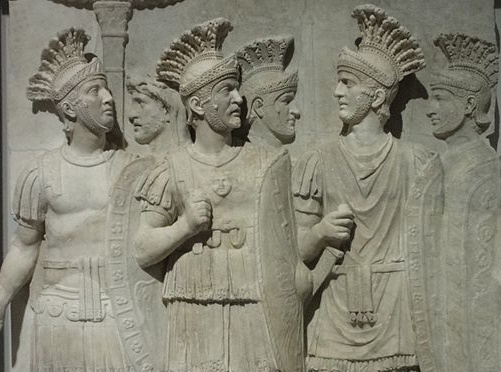KEY CONCEPT
Stereotypes about Millennials can oversimplify nuances, especially if preferences among different regions of the world are not taken into account. A new global survey of Millennials shows that work-life balance is important, but Millennials are still willing to work hard to advance their careers or achieve leadership roles. (Editor’s Note: This article is based on Part 4 of the survey.)
IDEA SUMMARY
The conventional wisdom about Millennials declares that they all want to rise rapidly to leadership positions but without working too hard or paying their dues. They also, again according to the conventional wisdom, care more about work/life balance than the usual spoils of success: money and status. A new world-wide study of Millennials conducted in 2014 and co-sponsored by the INSEAD Emerging Markets Institute, the HEAD Foundation and Universum reveals that the conventional wisdom is right on some issues, wrong in some key details, and makes the mistake of homogenizing the generation: the study, which surveyed Millennials in 43 countries, shows that Millennials in different regions of the world don’t have the exact same aspirations and attributes.
For example, nearly 70% of those surveyed said becoming a leader is ‘important’ or ‘very important,’ but their reasons for wanting to be leaders were surprisingly diverse. High future earnings was the most common reason given (36% of overall respondents), although 50% of respondents from Central and Eastern Europe considered money very important compared to only 17% of African respondents. In Africa, opportunities to coach and mentor others was the most common reason given for aspiring to become a leader, a response that enthused few of the Millennials in other regions. Another response, opportunities to influence the company or organization, was quite popular in Central and Eastern Europe (more than 45%) as well as in the United States (41%), but did poorly (about 25%) in the Asia-Pacific and Middle Eastern regions.
Other survey questions related to leadership and professional goals also revealed a diversity of opinions and called into question or tempered the conventional wisdom:
- Millennials are willing to work hard to be leaders. Two-thirds (64%) of respondents are willing to work longer hours and have more stress for the opportunities to be leaders, including from 66% to 70% in Africa, Asia-Pacific, Central and Eastern Europe and North America, and 56% to 58% in Western Europe and Latin America. The Middle East bucks the trend with only 46% of respondents.
- Millennials differ widely on how they want to be managed. For at least 40% respondents in North America, Western Europe, and Africa, the top attribute of a good manager was someone who empowers their employees — an attribute that drew just over 10% in the Middle East and Central and Eastern Europe. For this latter region, functional expertise in a manager was most important (an impressive 58%). In the Asia-Pacific region and the Middle East, no single attribute stood out.
- Most Millennials prefer to be specialists. By a margin of two to one, Millennials want to build careers as specialists rather than generalist managers. The Central and Eastern Europe region was the exception: a majority of respondents preferred to be generalists. The survey also asked respondents whether they would prefer to be managers or experts. Millennials in most regions were split, except in North America and Africa where a great majority said they would rather be experts.
- Work-life balance is important, but not necessarily the most important. The most persistent stereotype of Millennials is their focus on work-life balance above all else. The survey highlighted some of the nuances of work-life balance. For example, the majority of respondents (57%) considered work-life balance to mean having enough leisure time for a private life. Flexible work hours (45% overall but a strong 59% in North America) and recognition and respect for employees (45%) were also highly rated. The survey also showed that few respondents would refuse to work longer hours even if it meant hampering their careers; however, 47% might give up a good job for better work-life balance. Asked if they would dedicate more time to career and family, Millennials seemed evenly split.
BUSINESS APPLICATION
Decisions on recruiting, onboarding, leadership and development will be impacted by the implications of the research:
- Paying attention to regional differences is crucially important. When recruiting potential leaders, companies in Africa should highlight the opportunities to mentor, while companies in North America should focus on the opportunities to influence the organization. Regional differences are also important in terms of the managers that will be most appreciated by employees — empowering employees is important to North Americans, West Europeans and Africans while functional expertise is important to Central and Eastern Europeans, for example.
- Cross-cultural awareness and training is key to helping executives understand the differences among the regions. Procter & Gamble’s requires potential senior managers to gain experience in different functions and regions of the world — a potential template for 21st century executive development.
- The desire for work-life balance is real, although perhaps overstated. Millennials care about their careers and are willing to work hard; however, they are perhaps the first generation willing to put limits on work when it negatively impacts their home life.
- Measure employee engagement. Forget conventional wisdom. The best way to know what your Millennials employees want is to ask them. Continuously track your employees’ attitudes and satisfaction with their progress in career and personal goals.
REFERENCES
You Got Us Wrong: Millennials Prove They Are Divers In Their Career Aspirations and Desire for Work-Life Balance. Henrik Bresman. Part Four of Understanding a Misunderstood Generation (2014).











